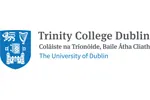About Medicine, BA - at Trinity College Dublin
Course overview The medical programme at Trinity is a challenging but highly rewarding experience. It leads to the degrees of Bachelor in Medicine, Bachelor in Surgery and Bachelor in Obstetrics and following graduation you will spend a further year as an intern in an approved hospital before becoming a fully registered medical practitioner.
Is this the right course for me?The academic requirements of this course are high and there will be considerable demands on your time. As medicine is ultimately about the care of people, you will also need to feel comfortable in a people-oriented environment where teamwork will be equally as valuable as your individual contribution.
Your first year as a medical studentThe first medical year is made up of three distinct modules, covering the basic and behavioural sciences, as well as human development, and research and study skills. You will also get an insight into aspects of the family in society and shadow a family over a period of time.
Module I - Working with People - introduces you to the theory and practice of effective communication, the composition and role of the healthcare team, and to the social and psychological aspects of human development. A distinctive element of this module is the Family Case Study assignment you will undertake for the duration of the year.
Module II - Biological Systems in their Environment - deals with physical and chemical principles and properties relevant to medicine, cell and tissue structure and function, basics of microbiology, immunology, inheritance, medical genetics and evolution.
Learning situations here include lectures, practical classes and tutorials.
Module III - Research Skills - is primarily practical and includes training in the use of online and library facilities. Strategies for effective study, reading and writing are covered with a small-group research project undertaken to apply the skills gained.
Did you know?First year students typically spend an average of 40 hours per week or more in a structured learning environment during the academic year.
The second and third medical yearsCourses in human form and function, as well as in the neurosciences and on diagnosis and treatment, are offered in second and third year. These modules deal with normal and abnormal structure and function of the body, integrating material from anatomical, physiological and biochemical perspectives in relation to the various organ systems, and with aspects pf pharmacology, microbiology and pathology, together with medical ethics. You will also have an opportunity to explore particular themes of your choice in greater depth. Hospital teaching begins early in the course, with an orientation programme of lectures, clinical demonstrations and bedside tutorials.
The clinical yearsFrom the beginning of fourth year you will attend a hospital continuously. To begin with, you will participate in ward rounds and observe surgical and other procedures but thereafter you will take rotations in clinical medicine, surgery, general practice and the various major medical specialist areas, including paediatrics, psychiatry, and obstetrics and gynaecology. These rotations also include a series of lecture programmes, tutorials and seminars. The module on diagnosis and treatment continues from the third year, with clinical pharmacology, therapeutics, pathology and microbiology.The majority of hospital attachments take place in St. James's in Dublin and the Adelaide and Meath Hospital incorporating the National Children's Hospital in Tallaght, although some training also takes place in regional hospitals around Ireland and in hospitals dedicated to particular areas of medicine.
Assessment structureThe assessment structure within medicine is wide and varied and includes in-course evaluation of practical and clinical skills, as well as case studies, research projects, formal written and oral examinations and Objective Structured Clinical Examinations.
Medical moderatorshipAfter completing year three successfully, you may be permitted to take a year out from the medical course to undertake a moderatorship in science in an approved subject. This is subject to the availability of places and the agreement of the head of department concerned, but is a good way to gain experience in scientific research if you are interested in the possibility of a career in academic medicine.
Career opportunitiesAs a doctor, you will have plenty of options to choose from when it comes to making a decision about your career. Most people wait until their year as an intern is complete before committing to one area over another. Some then enter general practice, while many more continue their training as a general physician or surgeon, or in a related specialist field. Alternatively, you might, as others have done, prefer to work in an area such as hospital administration, or make research your priority by opting for a career in academic medicine.
Graduate Entry ProgrammeTrinity College Dublin is currently considering the introduction of a specific graduate entry programme in medicine. The introduction of a graduate entry programme will be contingent on Government regulatory approval and provision of the necessary resources.
The College will not be introducing a graduate entry programme in September 2006.
Applications for entry to medicine in 2006 will be to our 5 year medical programme, and application should be made through the CAO. A small number of places on this 5 year medical programme are allocated to mature and graduate applicants and these are assessed by means of a short listing and interview process.
The deadline for these mature and graduate applications was the 1st February 2006 and late applications will not be accepted.


